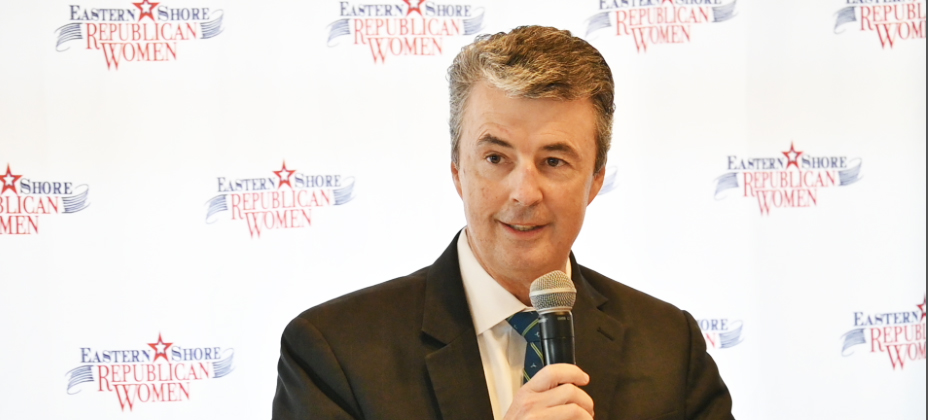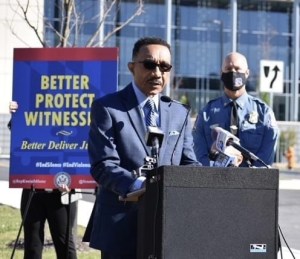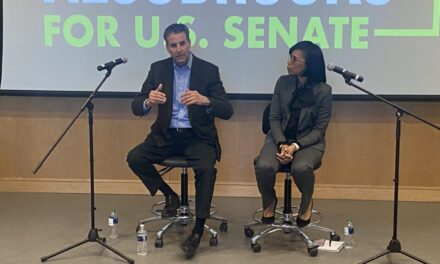By Amy Yurkanin
Attorneys for the U.S. Department of Justice filed a motion Thursday in a case challenging the Alabama attorney general’s position that people can be prosecuted for assisting women who travel out of state for abortions.
Those prosecutions would violate the Constitutional right to travel across state lines, according to the DOJ motion. One of the organizations suing Alabama Attorney General Steve Marshall, Yellowhammer Fund, provided travel assistance to women who needed abortions before Marshall said on a radio show that such conduct might constitute criminal conspiracy.
Yellowhammer Fund and owners of two women’s health clinics sued Marshall this summer, alleging the statements limited their rights of free speech and the right to travel. Last week, the U.S. Department of Justice signaled it would weigh in on the case.
“Just as the Alabama AG cannot directly prohibit an individual from crossing state lines to obtain a legal abortion, neither can he seek to achieve the same result by threatening to prosecute anyone who assists that individual in their travel,” according to the Department of Justice motion. “Thus, for the reasons explained more fully below, the United States files this Statement of Interest in support of Plaintiffs’ right to travel claims.”
Marshall has acknowledged that women cannot be punished for traveling to get abortions. However, he has said it might be a conspiracy if a plan is formed in Alabama to travel out of state for abortion. The state made performing an abortion illegal after the U.S. Supreme Court overturned Roe v. Wade last summer.
States can’t prohibit people from traveling across state lines and can’t stop third parties from helping individuals exercise their right to free travel, the motion said. That right applies even when people are traveling to engage in conduct that is illegal in some states.
Prohibiting third party assistance for travel would gut the right to travel, the motion said. The U.S. Supreme Court has overturned similar bans, including a law in California that made it illegal to help an indigent person relocate to the state. State laws cannot spill over borders to regulate conduct in other places, the motion said.
“A state that criminalized gambling could go further and prevent its residents from assisting with travel to casinos in Mississippi or Nevada, based solely on its policy disagreement with those states on that issue,” the motion said. “Or, a state that was concerned about the health effects of flavored tobacco could not only ban those products in-state, but also prohibit individuals from assisting with travel to another state to purchase those products.”
Marshall’s motion to dismiss the case said the state has an interest in preserving the lives of fetuses and protecting women from medical care that’s not regulated by Alabama authorities.
Since justices on the U.S. Supreme Court overturned Roe last year, the U.S. Department of Justice created a Reproductive Rights Task Force to scrutinize anti-abortion laws, according to a press release. In Idaho, they filed a lawsuit to block the law due to concerns that women could be denied medical care for pregnancy complications. The agency also asked the U.S. Supreme Court to restore access to abortion drugs.
“Alabama may not infringe the constitutional right to travel in order to meet its policy goals,” said Principal Deputy Assistant Attorney General Brian Boynton, head of the Justice Department’s Civil Division. “The Civil Division will continue to assert the interests of the United States.”
The Supreme Court’s decision in Dobbs v. Jackson Women’s Health Organization kicked the decision about abortion back to the states. Some kept the procedure legal and some, including Alabama, banned it.
Eric Johnston, an attorney and president of the Alabama Prolife Coalition, said the U.S. Department of Justice has gotten involved in too many cases involving state laws on abortion.
“The court in this abortion case can decide the issue without the intervention of the DOJ,” Johnston said. “The plaintiff in this case and the DOJ are abortion advocates. I accept the position of the plaintiff, but the DOJ has no business involving itself in this case. There is no federal issue for the United States as a party.”
A statement from the department said the agency weighed in to protect the Constitutional rights of Alabama women.
“As I said the day Dobbs was decided, bedrock constitutional principles dictate that women who reside in states that have banned access to comprehensive reproductive care must remain free to seek that care in states where it is legal,” said U.S. Attorney General Merrick Garland. “This filing demonstrates the Justice Department’s commitment to defending the constitutional right to travel and to protecting reproductive freedom under federal law.”











